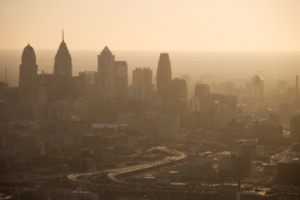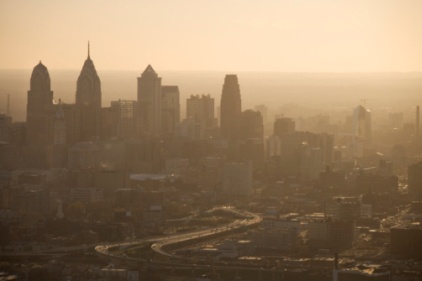 The EPA wraps up four days of public hearings on its Clean Power Plan today -- and the United Mine Workers of America (UMWA) rally against it tomorrow in Pittsburgh, Pennsylvania.
The EPA wraps up four days of public hearings on its Clean Power Plan today -- and the United Mine Workers of America (UMWA) rally against it tomorrow in Pittsburgh, Pennsylvania.
The plan would, for the first time, cut carbon pollution from existing power plants, the single largest source of pollution in the U.S. The EPA predicts that when the proposed plan is fully implemented in 2030, carbon emissions from these sources will be 30 percent below 2005 levels.
“The proposal will protect public health, move the United States toward a cleaner environment and fight climate change while supplying Americans with reliable and affordable power,” according to a statement released by the agency.
An unusual alliance
The UMWA, along with, the International Brotherhood of Electrical Workers (IBEW), the International Brotherhood of Boilermakers, the Utility Workers Union of America, see the Clean Power Plan as a threat to jobs.
That concern has resulted in an unusual alliance between coal miners and the coal industry, which also opposes the proposed regulation. Miners say the EPA is ignoring the economic impact the rule will have on them and their families.
The union coalition predicts that 5,000 people from Pennsylvania, West Virginia, Virginia, Ohio, Kentucky, Illinois, Indiana and Alabama will attend tomorrow’s rally at the David L. Lawrence Convention Center
Bringing the coalfields to them
"It is beyond belief that the EPA would refuse to hold one of its public hearings in the coalfields where the people who will be most adversely affected by this proposed rule live and work," said UMWA International President Cecil E. Roberts. "We believe that EPA still can and should hold ahearing in the coalfields, but since they have not scheduled one yet, we decided to bring the coalfields to them."
The four recent public hearings on the plan were held in Pittsburgh, Atlanta, Denver and Washington, D.C.
West Virginia, which gets 95 percent of its energy from coal-fired plants, is expected to be most affected by the regulation. More than 20,000 jobs in the state are in the coal industry.
"Every time we lose a coal miner’s job in this state we lose a piece of West Virginia," said Bill Raney, President of the West Virginia Coal Association, "because we lose payroll taxes, hospitalization and contribution to the miner’s retirement and health benefit funds."
Natural gas increase contributing to coal job loss
West Virginia has lost thousands of coal jobs in recent years. Much of that trend has been attributed to the depletion of coal seams and rapid growth of natural gas.
West Virginia has so far resisted calls to diversify its economy.
The EPA has received around 300,000 comments on the proposal, and anticipates gathering an additional oral comments during the public hearings.

